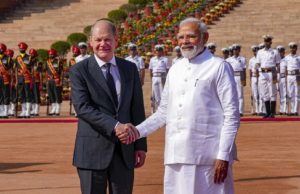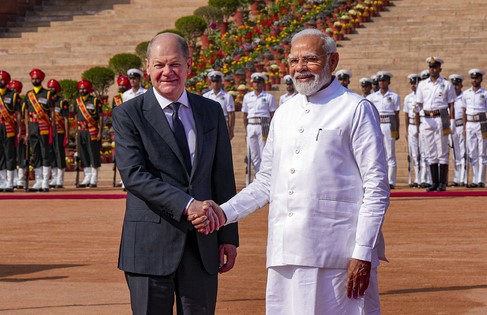NEW DELHI – Berlin and New Delhi are aiming to deepen their trade relations – a venture that was reaffirmed at the recent meeting between Chancellor Olaf Scholz and Prime Minister Narendra Modi in India’s capital, New Delhi. Despite the warm atmosphere and the apparent willingness to strengthen bilateral ties, concrete results are still pending. The opening of the economic conference by Federal Minister of Economics Robert Habeck and his Indian counterpart, attended by around 700 delegates, set the tone for the urgency of a trade agreement that has been in limbo for almost two decades.
The European Union and India have been negotiating such an agreement for a long time, but the complexity of mutual requirements has led to a stalemate. Germany, as a driving force within the EU, sees India as a strategic partner and a growing market that not only offers economic opportunities but could also serve as a counterbalance to China. The Indian government, on the other hand, emphasizes the need to protect its diverse interests – comparable to those of the 27 EU member states – especially in the agricultural sector.

India’s Premier Narendra Modi welcomes German Chancellor Olaf Scholz
The discussions in New Delhi have shown that both sides prefer a pragmatic approach that initially aims for an opening for industrial goods before tackling a comprehensive trade agreement. This strategy is supported by leading economic representatives such as Roland Busch, the CEO of Siemens and chairman of the Asia-Pacific Conference, which also met in New Delhi. Busch warns against burdening the negotiations with excessive demands and advocates for a gradual approach.
The meeting, which is taking place for the 18th time, brings together economic representatives from Germany and the Asia-Pacific region, highlighting the importance of these relationships. The discussions between Scholz and Modi could represent a turning point, but it remains to be seen how the relationships will develop in light of the geopolitical situation and India’s proximity to Russia. Although the bilateral talks have not achieved immediate breakthroughs, they have opened the doors for future negotiations and raised hopes for a stronger German-Indian partnership. (zai)

